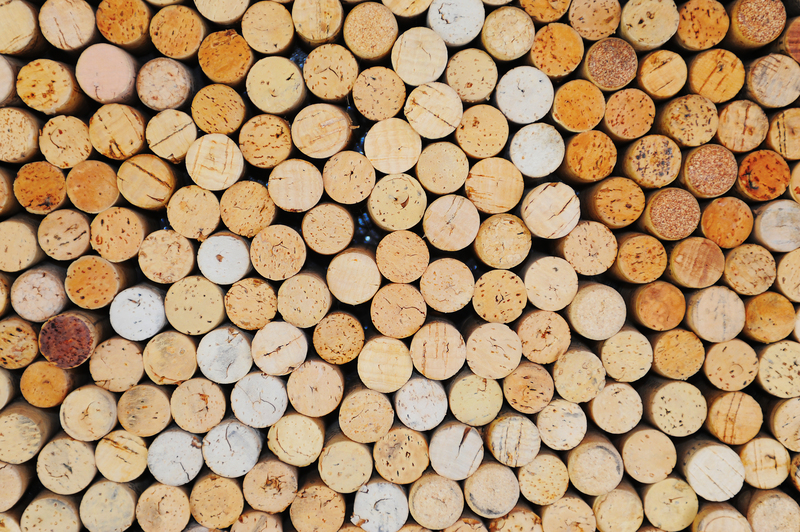Maximize Your Savings When Getting Rid of Bulky Waste
Getting rid of bulky waste--such as old furniture, appliances, mattresses, and yard debris--not only frees up space in your home or office but can also help you save money if tackled the right way. With landfill and haul-away costs rising and environmental considerations becoming more important, finding cost-effective solutions for bulky waste disposal is more crucial than ever. In this comprehensive guide, we'll walk you through practical tips and expert techniques to maximize your savings when disposing of bulky waste, while also considering eco-friendly options.

What Is Bulky Waste?
Bulky waste refers to large household items that are too big for regular trash collection. This can include:
- Sofas, chairs, and other old furniture
- Mattresses and bed frames
- Large appliances such as refrigerators, washing machines, or ovens
- Carpet, rugs, and flooring materials
- Outdoor items like grills, garden sheds, and bicycles
- Yard waste: branches, logs, stumps, and more
These items often require special handling, disposal fees, or special pickup services, making it essential to use smart strategies for cost reduction.
Understanding the Costs: Why Bulky Waste Disposal Is Expensive
Disposing of large items isn't as simple as tossing out your everyday garbage. Cities impose surcharges for excessive size, certain materials, or extra pickups. Moreover, landfill tipping fees, fuel costs for hauling, and labor add up. Savvy homeowners and business owners look for ways to cut these costs, ensuring their wallets stay heavy when the waste goes away.
Common Bulky Waste Disposal Costs
- Municipal collection service fees: Many cities charge per item or load.
- Private haulers: Junk removal companies charge based on the volume of waste and travel distance.
- Landfill gate/tipping fees: These can be steep, especially for non-recyclable items.
- Special item surcharge: Mattresses, refrigerators (due to refrigerants), and electronics often incur extra fees.
Maximizing Your Savings: Strategic Tips For Bulky Waste Removal
1. Plan Ahead for Municipal Bulky Waste Collection
Most cities and counties offer scheduled bulky waste pickups, often for free or at a deep discount. Take advantage by:
- Contacting your local public works department for the next scheduled collection date.
- Bundling multiple items for a single pickup rather than several small pickups.
- Ensuring items are prepared according to service guidelines (e.g., remove doors from fridges, break down furniture).
Tip: Some locations limit the number of free pickups per year, so consolidate as much as possible!
2. Donate, Sell, or Give Away Usable Bulky Items
Before you pay to dispose, check if your items can have a second life. Donation is a great way to divert waste from landfills and save money:
- Contact local charities, shelters, or thrift stores. Many offer free pickup for large, gently used items.
- List items on platforms like Facebook Marketplace, Craigslist, or OfferUp for sale or giveaway.
- Try Buy Nothing groups or neighborhood social media pages--someone nearby may want what you no longer need.
Pro tip: Tax-deductible donations can provide extra savings.
3. Upcycle or Repurpose Bulky Waste
If you're crafty, try transforming waste into something useful or beautiful. For example:
- Old doors can become rustic tables or headboards
- Wooden pallets are perfect for creative garden projects
- Appliance parts can be used for garage storage solutions
This approach cuts down on disposal costs and can add unique, functional pieces to your space.
4. Rent a Dumpster Only If Necessary
While renting a dumpster may seem convenient, it can be costly for smaller jobs. Save money by:
- Getting quotes from several dumpster companies--prices and sizes vary widely.
- Choosing a smaller dumpster if you don't have a full house or multiple rooms to clear.
- Splitting the cost with neighbors or friends also doing cleanouts.
Always check what's allowed in your rental--hazardous materials are usually banned and can result in fines.
5. Make the Most of Transfer Stations and Recycling Centers
Local transfer stations and recycling centers often accept certain bulky goods at reduced rates--or even for free. Appliances, metal furniture, and electronics are often recyclable, which can dramatically lower your disposal costs.
Hot tip: Some centers pay for scrap metal or e-waste, turning your trash into cash.
6. Arrange for a Community Junk Swap or Yard Sale
Organize a neighborhood event where people can trade, sell, or give away unwanted bulky items. This collaborative approach boosts community spirit while saving money on hauling costs.
- Coordinate via social media or platforms like Nextdoor
- Set up at a local park or community center for easy exchange
- Arrange for a bulk pickup only for items left unclaimed
7. Utilize Manufacturer or Retailer Take-Back Programs
Many large retailers and manufacturers offer take-back or recycling programs for items like mattresses, appliances, or electronics when you purchase a replacement. Always ask about removal options at the time of purchase to maximize your savings and convenience.
The Environmental and Legal Side: Avoid Hidden Penalties
Proper Disposal Matters
Improper disposal--such as dumping bulky waste on public land--can carry significant penalties. Cities may impose fines, fees, and even legal action. Environmental harm is another consideration, as inappropriate dumping can impact soil, water, and wildlife.
- Mattresses often contain chemicals and should be disposed of at approved facilities.
- Refrigerators and AC units must have refrigerants safely removed.
- Old electronics can leach toxic substances if not recycled properly.
Always check with your local authorities for approved bulky waste disposal sites to avoid costly mistakes.
Bulk Waste Savings Checklist: How to Save Money Step by Step
- Sort out what can be donated, sold, or given away first.
- Contact your municipal waste department for free or discounted bulk pickup schedules.
- Cull reusable parts for upcycling or DIY projects--save on disposal, add value to your home.
- Get several quotes for private haul or dumpster rental if necessary.
- Check recycling centers for free drop-off or potential rebates for metals and e-waste.
- Look into community swap or sale events for the ultimate in zero-cost removal.
- Inquire about retailer or manufacturer take-back at the point of purchasing new items.
Comparing Bulky Waste Solutions: Which Is Right for You?
Municipal Pickup
- Pros: Often free or highly affordable, easy scheduling.
- Cons: Limited number of pickups, restrictions on items and quantities, strict prep rules.
Donation/Resale
- Pros: Potential tax deductions, supports local charities, zero disposal cost.
- Cons: Only available for usable items, pickup scheduling may be limited.
Private Junk Removal
- Pros: Handles heavy lifting, fast service, takes almost anything.
- Cons: Most expensive option; compare quotes and beware of hidden fees.
Self-Haul to Transfer Station
- Pros: Often cheapest for multiple items, flexible.
- Cons: Requires vehicle and labor, may incur fees for certain materials.
Dumpster Rental
- Pros: Best for large renovations or clear-outs.
- Cons: Can be overkill for a single bulky item; expensive for small jobs.
Bulky Waste FAQs: Save Money and Stress
What Items Count as Bulky Waste?
Bulky waste typically includes furniture, large appliances, mattresses, carpeting, and outdoor items too large for curbside bins.
How Do I Avoid Bulky Item Pickup Fees?
Donate, recycle, or wait for city-sponsored free collection days. Certain items (like mattresses) may always incur a surcharge due to recycling regulations.
Are There Free Bulky Waste Disposal Options?
Check local events, community clean-up days, or transfer stations offering free drop-off for certain waste types. Many charities will pick up usable items for free.
Can I Get Paid for My Bulky Waste?
Yes! Scrap yards may pay for metals, and electronics recycling centers sometimes offer rebates. Selling or donating valuable items is another way to maximize your savings.
Why Is Recycling Bulky Waste Important?
Proper recycling conserves resources, reduces landfill space, and may be required by law for items containing hazardous materials.

Eco-Friendly Waste Disposal: Save Money & The Environment
- Always prioritize recycling and reusing before disposal.
- Support companies and organizations committed to sustainable waste management.
- Choose haul-away services that sort and recycle as much as possible.
Making environmentally wise choices can sometimes result in direct savings through fee waivers, tax incentives, or even cash for recyclables.
Conclusion: Save Big When You Clear Out Big Items
Maximizing your savings on bulky waste disposal takes a bit of planning--but the rewards are space gained, costs lowered, and a cleaner conscience. Always start by reusing and recycling whenever possible, research local disposal options, and never hesitate to ask about discounts or rebates. From donating and selling to taking advantage of municipal programs and sharing resources in your community, there are many ways to turn bulky waste removal from a costly headache into a money-saving opportunity.
If you're looking to get rid of bulky waste and want to keep your costs down, bookmark this guide and share it with neighbors and friends--because saving money can be a community effort!